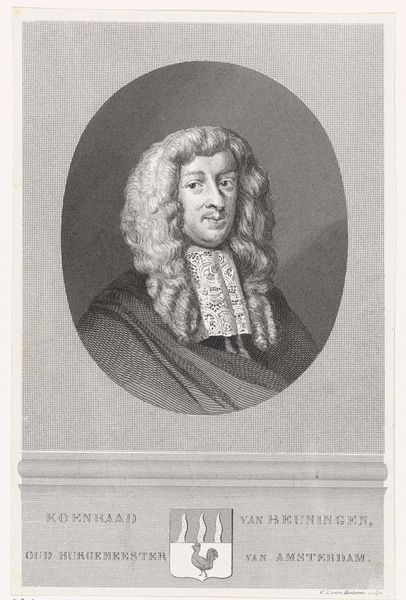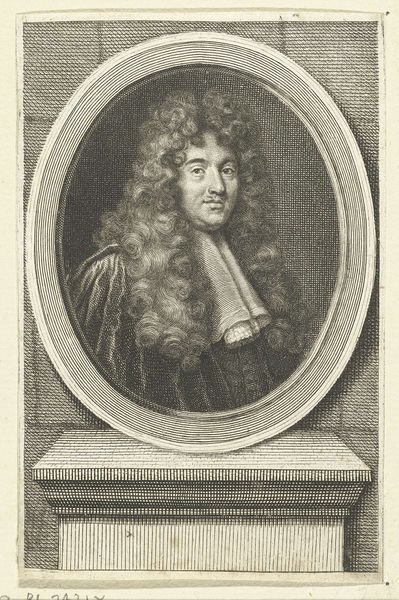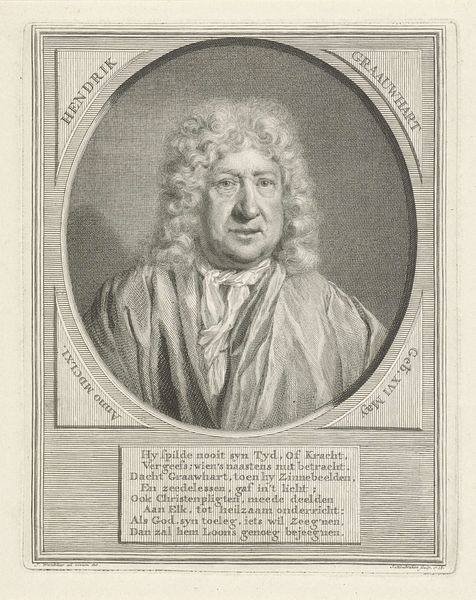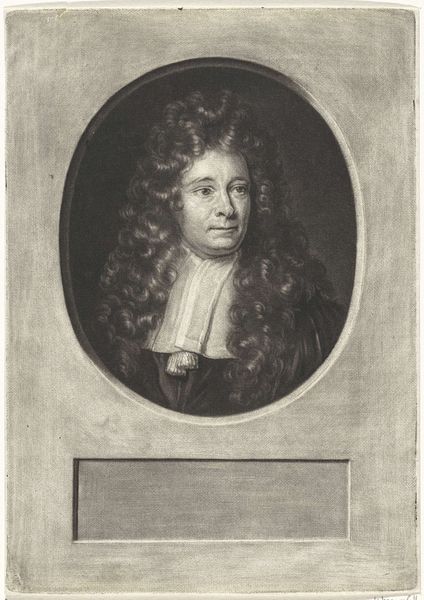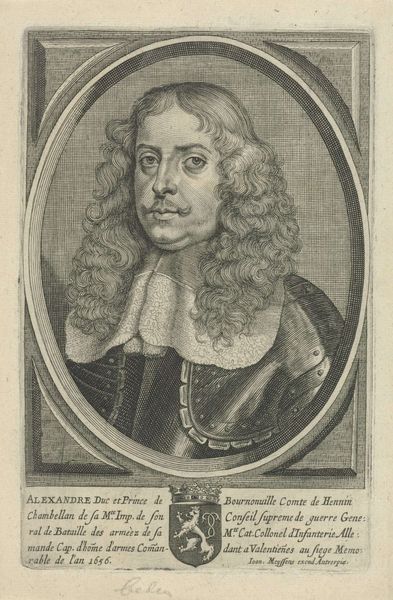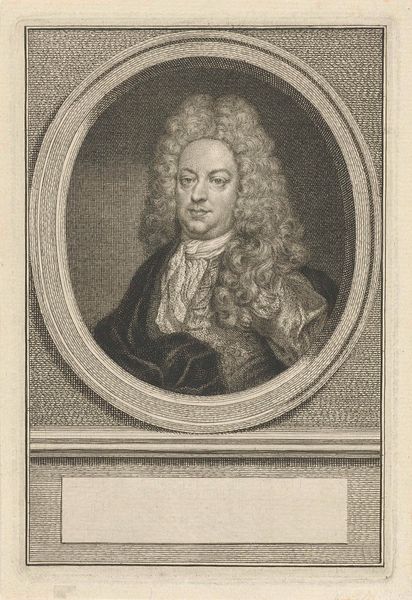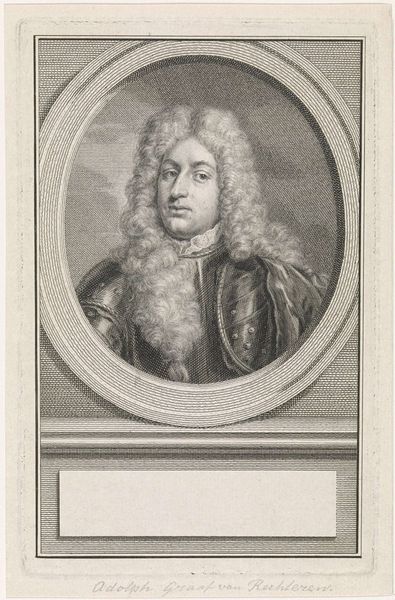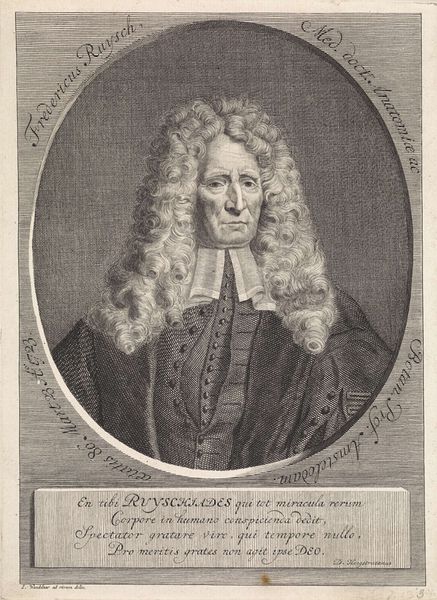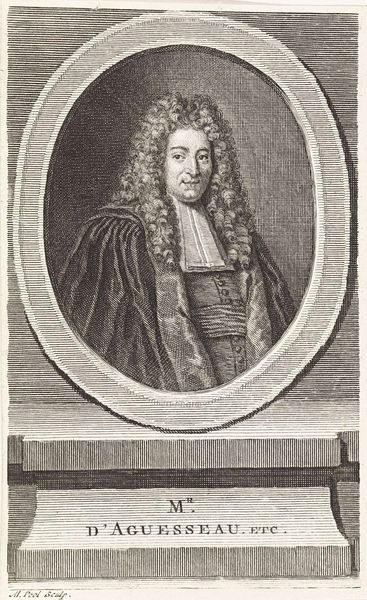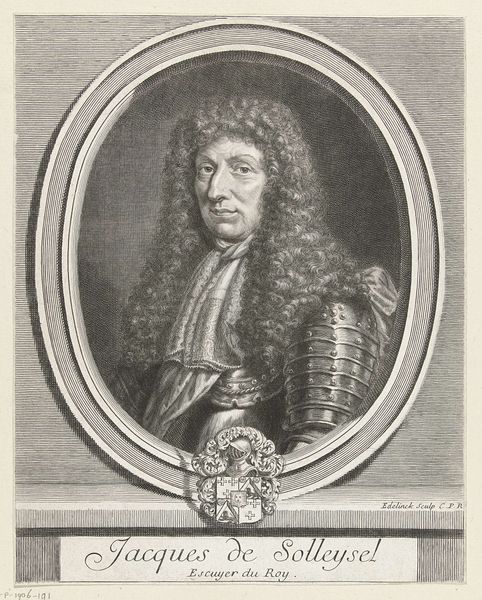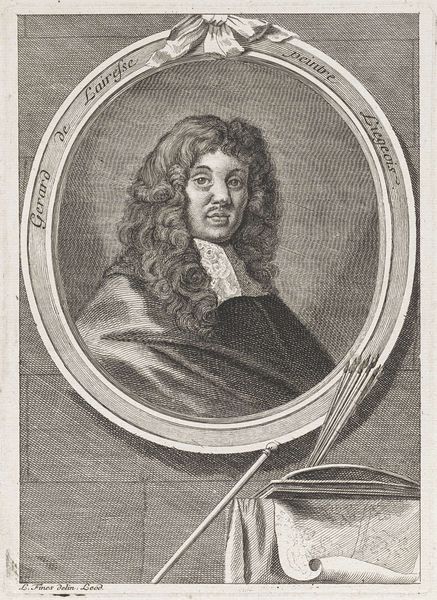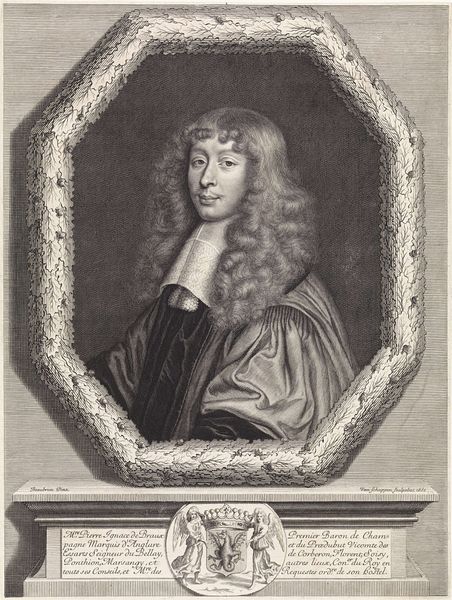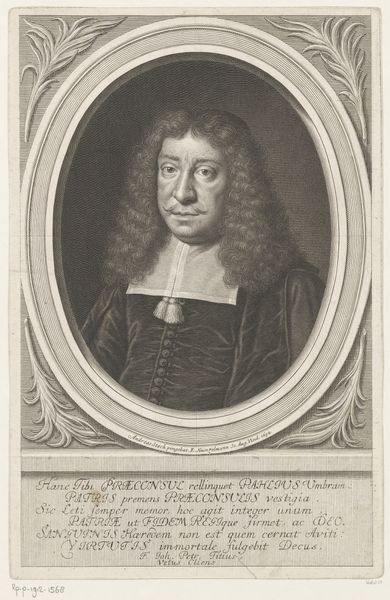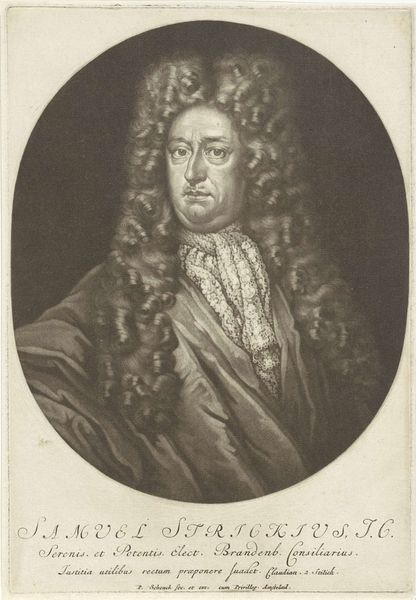
#
pencil drawn
#
aged paper
#
wedding photograph
#
photo restoration
#
parchment
#
old engraving style
#
historical photography
#
old-timey
#
19th century
#
columned text
Dimensions: height 179 mm, width 120 mm
Copyright: Rijks Museum: Open Domain
This is Jacob Houbraken’s print of Johannes Hudde, made sometime in the 18th century. It is an engraving, meaning the image was incised into a metal plate, likely copper, with a tool called a burin. Ink was then applied to the plate and wiped away, remaining only in the carved lines, before being pressed onto paper. The striking thing about this portrait is how the material and process influence its appearance. The precision and detail achieved through engraving capture Hudde's likeness and status as Burgemeester. The texture of the paper adds depth to the image, while the crisp lines create a sense of formality. Engraving was essential for disseminating images and information during this period, playing a key role in shaping public opinion and cultural identity. The labor-intensive process of engraving reflects a culture of skilled craftsmanship and attention to detail, contrasting with today’s mass production. Considering the materials, making, and social context of this print allows us to appreciate it as both a work of art and a product of its time, blurring any traditional boundaries we might see between fine art and craft.
Comments
No comments
Be the first to comment and join the conversation on the ultimate creative platform.
